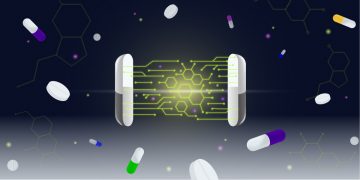BioRad.io Podcast Series
The BioRad.io podcast series is focused on R&D informatics, introducing you to people responsible for implementing systems and technologies to a diverse set of use-cases. Join us every month to see what you can learn.

Unlocking the Power of Analysis with Automation
Disparate systems, distributed teams, and overly complex technologies are a recipe for inefficiency in research and development (R&D) laboratories, especially in drug development. With the pressure to meet challenging deadlines and strict regulations, it is easy for working practices to become disconnected. To improve the efficiency, accuracy, and consistency of data generation, acquisition, and management, R&D organizations are looking to streamline their lab practices by investing in technologies that automate data generation, accelerate data collection speed and storage, and enhance the quality and reliability of the information produced. Lab automation presents exciting opportunities for future research, promising novel advances in machine learning and artificial intelligence (AI), liquid handling robotics, and cloud-based data workflows.

Data Standardization
Increasingly, biopharma research & development experimental data are siloed and stored in varying formats. This makes it difficult to search, retrieve and share data. Furthermore, these data are often not interoperable, making it impossible to compare. Data needs to be better managed to be more collaborative, shareable, and interoperable, in order to accelerate research and continue making breakthroughs. Data standardization aims to forge a path toward machine-readable and actionable data that can be found, accessed, and reused with minimal human intervention.

Globally Aware Genomes — an Informatics Challenge
The Human Genome Project was completed nearly two decades ago, in 2003. The primary vision of this project was to produce a human reference genome, a representative example of the set of genes in one idealized individual human. However, the currently available reference genomes do not represent the genetic diversity found across different human populations. As such, any downstream products (drugs therapies, personalized medicine, etc.) derived from the human genome will not accurately represent the vast majority of the human population.

Lab of the Future
In an effort to increase the return on investment of research and development, pharmaceutical companies are constantly looking for ways to reduce costs. One way to do this is to incorporate technology and minimize human interaction. As a result, scientists will have more time to focus on the design and analysis of experiments. How will the Lab of the Future reflect these changes?

Active Machine Learning in Drug Discovery
Drug discovery and development are both time and resource intensive since a lot of different compounds need to be screened across a lot of different targets. See how machine learning models can be used to predict screening results and how active learning algorithms can be used to efficiently select which experiments to perform in order to build those models.
